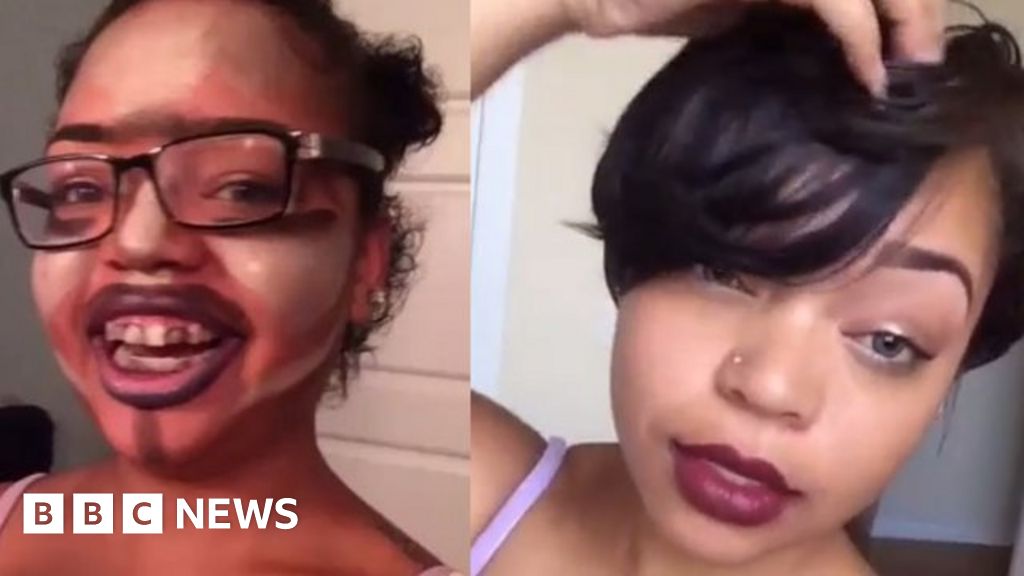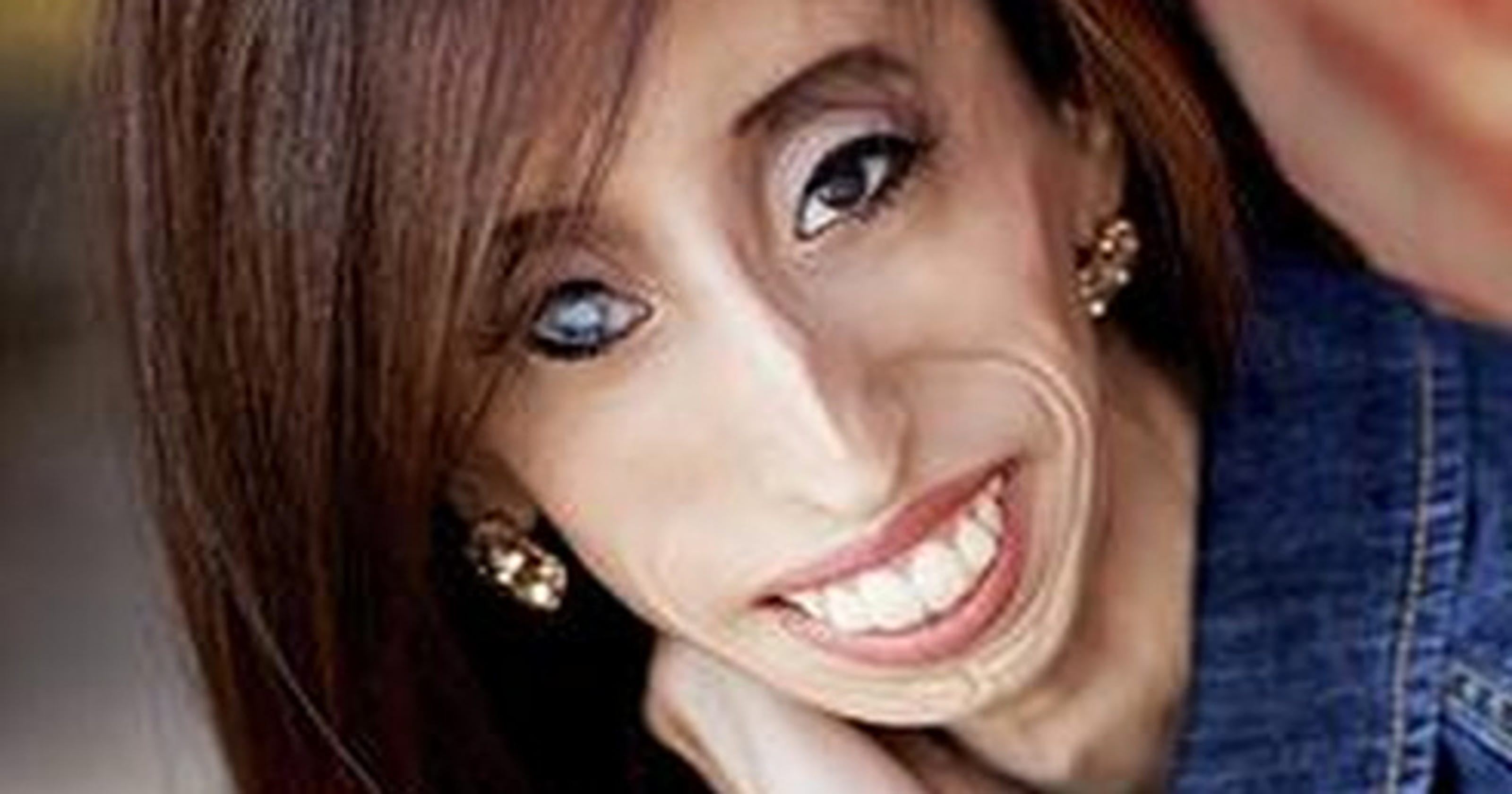Let’s talk about something that might make you squirm, but hey, life’s all about facing uncomfortable truths. The idea of "the ugly person in the world" has been tossed around in conversations, memes, and even debates for years. But what does it really mean? Is it about physical appearance, or is there more to it? Let’s dive into this topic with an open mind and a dash of curiosity, because trust me, it’s not as straightforward as you might think.
Now, before we go full steam ahead, let’s set the record straight. This ain’t about shaming anyone or picking on people based on how they look. Nope, this is about understanding the concept of beauty and ugliness in a world that often values appearances way too much. So, buckle up, because we’re about to explore some deep stuff.
And hey, if you’ve ever felt judged or judged someone else based on looks, this article might just change your perspective. We’re going to talk about the science behind perceptions, the cultural impact of beauty standards, and how we can shift our focus from external appearances to inner qualities. Sounds good? Let’s get started.
Read also:Bryn Renner Still Married The Inside Scoop You Need To Know
Table of Contents
- What Does "Ugly" Really Mean?
- Cultural Standards of Beauty and Ugliness
- Biological Factors Behind Perceived Ugliness
- Psychological Effects of Being Labeled "Ugly"
- The Role of Media in Shaping Perceptions
- Celebrity Stories: Overcoming Labels
- Scientific Research on Perceptions of Ugliness
- Redefining Beauty: Beyond Physical Appearances
- The Importance of Self-Acceptance
- Wrapping It Up: What Can We Learn?
What Does "Ugly" Really Mean?
Alright, let’s start by breaking down the word "ugly." Ugly, in its simplest form, refers to something that is unpleasant to look at or lacks beauty. But here’s the thing—beauty is subjective. What one person finds ugly, another might find fascinating. It’s all about perspective, you know?
Now, if we’re talking about people, labeling someone as "ugly" is not just about their physical features. It can also involve their behavior, personality, or even the energy they bring into a room. So, while we might focus on appearances, there’s a lot more going on beneath the surface.
Here’s the kicker—ugly isn’t a permanent label. People change, grow, and evolve over time. And sometimes, what seemed ugly at first glance can turn out to be beautiful in unexpected ways. Isn’t that wild?
Cultural Standards of Beauty and Ugliness
Let’s take a trip around the globe and see how different cultures define beauty and ugliness. In some parts of the world, a fuller figure is seen as desirable, while in others, being slim is the ultimate goal. It’s like a big ol’ game of "what’s hot and what’s not," and the rules keep changing depending on where you are.
Historical Perspectives
Back in the day, beauty standards were all over the place. In ancient Egypt, for example, both men and women used makeup to enhance their features. Meanwhile, in Victorian England, pale skin was all the rage because it symbolized wealth and leisure. See what I mean? Beauty standards are constantly evolving, and what’s considered ugly today might be celebrated tomorrow.
Read also:John Wayne Grandchildren The Legacy Continues Through The Next Generation
And let’s not forget the role of religion and tradition in shaping these standards. Some cultures value modesty and simplicity, while others embrace boldness and extravagance. It’s a fascinating blend of history, culture, and personal preference.
Biological Factors Behind Perceived Ugliness
Now, let’s get scientific for a moment. Did you know that our brains are wired to recognize certain features as attractive or unattractive? It’s all about symmetry, proportion, and health indicators. For example, people with symmetrical faces are often perceived as more attractive because it signals good genes and overall well-being.
But here’s the thing—biology isn’t the only factor. Social conditioning, personal experiences, and even media exposure play a huge role in shaping our perceptions. So, while there might be some biological basis for what we find ugly, it’s not the whole story.
Oh, and let’s not forget about age. As we grow older, our skin changes, our bodies change, and so do our perceptions of beauty. What seemed ugly in our teens might look downright charming in our thirties. It’s all about perspective, baby.
Psychological Effects of Being Labeled "Ugly"
Let’s talk about the emotional side of things. Being labeled as "ugly" can have a serious impact on a person’s mental health and self-esteem. Imagine walking into a room and feeling like everyone’s judging you based on how you look. It’s enough to make anyone want to crawl under a rock, right?
Impact on Confidence
Studies have shown that people who are frequently criticized for their appearance are more likely to suffer from anxiety, depression, and low self-esteem. It’s a vicious cycle—feeling ugly can lead to social withdrawal, which can further exacerbate feelings of loneliness and isolation.
But here’s the good news—many people find ways to overcome these challenges. Through therapy, self-care, and supportive relationships, they learn to embrace their uniqueness and see themselves in a more positive light. It’s not easy, but it’s definitely possible.
The Role of Media in Shaping Perceptions
Let’s talk about the elephant in the room—media. Whether we like it or not, movies, TV shows, and social media platforms play a huge role in shaping our perceptions of beauty and ugliness. Think about it—how many times have you scrolled through Instagram and felt like you don’t measure up?
Celebrity Culture
Celebrities are often held up as the gold standard of beauty, but let’s be real—they have access to stylists, makeup artists, and Photoshop that most of us don’t. What we see on the screen isn’t always reality, but our brains still process it as if it is. It’s like a constant stream of unrealistic expectations being fed to us 24/7.
And don’t even get me started on the rise of influencers. These days, anyone with a decent camera and a strong Wi-Fi connection can become an authority on beauty. But at what cost? Are we sacrificing authenticity for the sake of likes and followers?
Celebrity Stories: Overcoming Labels
Let’s take a moment to celebrate some famous folks who’ve defied the odds and proved that beauty comes in all shapes and sizes. Take Jameela Jamil, for example. She’s been vocal about body positivity and the harmful effects of diet culture. Or how about Lizzo, who’s using her platform to promote self-love and acceptance?
Lessons from Their Journeys
These celebrities remind us that beauty isn’t just skin-deep. It’s about confidence, authenticity, and being true to yourself. They’ve faced their share of criticism and negativity, but they’ve chosen to rise above it and inspire others to do the same.
And hey, if they can do it, so can we. It’s all about finding your tribe, embracing your quirks, and realizing that you’re way more than just your physical appearance.
Scientific Research on Perceptions of Ugliness
Let’s dive into some data for a moment. Studies have shown that our perceptions of beauty and ugliness are influenced by a combination of biological, cultural, and psychological factors. For example, research conducted by the University of California found that people tend to associate symmetrical faces with higher levels of attractiveness.
But here’s the interesting part—when participants were shown images of people with less conventional features, their opinions often changed over time. It’s like our brains need a little time to adjust and appreciate the beauty in imperfection.
And let’s not forget about the role of empathy. When we take the time to get to know someone beyond their appearance, we often find that they’re far more interesting and complex than we initially thought. It’s all about breaking down those preconceived notions and seeing people for who they truly are.
Redefining Beauty: Beyond Physical Appearances
So, how do we redefine beauty in a world that’s obsessed with appearances? It starts with shifting our focus from external features to inner qualities. Think about it—kindness, intelligence, and humor are way more important than the size of someone’s nose or the shape of their face.
Practical Tips for Change
Here are a few things you can do to start redefining beauty in your own life:
- Practice gratitude for your body and all it does for you.
- Surround yourself with people who appreciate you for who you are, not just how you look.
- Limit your exposure to media that promotes unrealistic beauty standards.
- Focus on nurturing your mind and soul through hobbies, learning, and self-care.
It’s not about ignoring appearances altogether—it’s about finding a balance and realizing that there’s so much more to life than what meets the eye.
The Importance of Self-Acceptance
Let’s wrap things up with a little pep talk. Self-acceptance is the key to unlocking true happiness and fulfillment. It’s about embracing who you are, flaws and all, and realizing that you’re enough just as you are.
Steps to Boost Self-Acceptance
Here are a few tips to help you on your journey:
- Practice self-compassion and treat yourself with kindness.
- Focus on your strengths and accomplishments rather than your perceived flaws.
- Seek out positive role models who embody the qualities you admire.
- Remember that everyone has insecurities—it’s part of being human.
And hey, if you stumble along the way, that’s okay. Growth isn’t linear, and it’s all about learning and evolving over time. You’ve got this, trust me.
Wrapping It Up: What Can We Learn?
So, there you have it—a deep dive into the world of "the ugly person in the world." We’ve explored the meaning of ugliness, the impact of cultural standards, the science behind perceptions, and the importance of self-acceptance. It’s been quite the journey, hasn’t it?
Here’s the bottom line—ugly is a label, and like all labels, it’s subjective and often misleading. Beauty comes in all shapes, sizes, and forms, and it’s up to us to redefine what it means in our own lives. So, the next time you catch yourself judging someone based on appearances, take a step back and remind yourself that there’s so much more to the story.
And hey, if you’ve learned something from this article, why not share it with a friend? Or leave a comment and let me know what you think. Together, we can create a world where everyone feels seen, heard, and valued, no matter how they look. Thanks for reading, and remember—you’re way more than just your appearance. 💪✨


